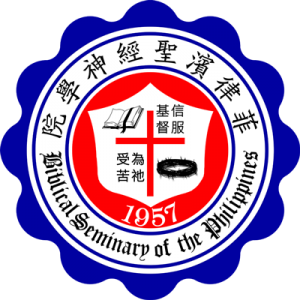by Samson Uytanlet, PhD
There is man who owns a hundred sheep which he placed under the care of four shepherds. The one hundred sheep were placed in one sheep pen, and each shepherd was assigned a quadrant within it. The first shepherd is the oldest among the four. His three younger peers perceived him as very stoic. As a young shepherd he learned the fundamentals of shepherding from his older peers, a skill he wants to be preserved and to pass on to the next generation. The second shepherd was trained in another country. His peers think he is insensitive to the local norms. As a shepherd-trainee in a foreign land, he used to shepherd other breeds whose characteristics are different from the ones he is presently shepherding. The third shepherd is a musician. He is perceived by his peers as a shallow and emotional person, but as a flute player he can calm the restless sheep in the pen with his music. The fourth one is the youngest of the four. He is perceived to have an unusual gift of being able to communicate with the sheep, as some kind of a “sheep whisperer,” who knows when a sheep is lonely or depressed, and he would tell his personal stories to the sheep, and the sheep loves to listen to these stories. Although the four shepherds were feeding the sheep the same food, the fourth shepherd is able to convince the sheep that the food in his quadrant is more delicious and healthier than those in the other three. As a result, many sheep prefer to go to the fourth quadrant than the other three combined. A few older sheep with their lambs remain in the first quadrant, some of the different breeds prefer the second quadrant and a number of younger lambs prefer the third.
 One evening, the enemy came and opened the gate of the sheep pen. Ninety-nine sheep went out, and only one was left. When the four shepherds found out about the ninety-nine lost sheep, they immediately closed the gate so that the one remaining sheep would not be able to go out anymore. They decided to take care of it, hoping that they can find a mate for it. The sheep first stayed in the quadrant of the first shepherd, where the old shepherd fed it. The next day, the sheep moved to the quadrant of the second shepherd, and he began to feed it. When the old shepherd saw this, he accused the foreign-trained shepherd of stealing his sheep. While they were arguing, the musician began playing his flute. The sound attracted the sheep and it moved to the third quadrant. The first two shepherds began to accuse him of stealing their sheep. While the three were arguing, the fourth shepherd began to talk with the sheep and assured it of a warm welcome should it happen to go to his quadrant; and so the sheep did. The first three shepherds each went to his own home and began to think of how they can convince the sheep to go back to their quadrants.
One evening, the enemy came and opened the gate of the sheep pen. Ninety-nine sheep went out, and only one was left. When the four shepherds found out about the ninety-nine lost sheep, they immediately closed the gate so that the one remaining sheep would not be able to go out anymore. They decided to take care of it, hoping that they can find a mate for it. The sheep first stayed in the quadrant of the first shepherd, where the old shepherd fed it. The next day, the sheep moved to the quadrant of the second shepherd, and he began to feed it. When the old shepherd saw this, he accused the foreign-trained shepherd of stealing his sheep. While they were arguing, the musician began playing his flute. The sound attracted the sheep and it moved to the third quadrant. The first two shepherds began to accuse him of stealing their sheep. While the three were arguing, the fourth shepherd began to talk with the sheep and assured it of a warm welcome should it happen to go to his quadrant; and so the sheep did. The first three shepherds each went to his own home and began to think of how they can convince the sheep to go back to their quadrants.
The next day, the owner found out about the quarrels among his shepherds and about the ninety-nine lost sheep that went out of the pen. He summoned the four and reminded them that he is the real owner of the sheep. He also said to them, “Instead of fighting among yourselves as to who should shepherd the one remaining sheep, should you not go out and look for the other ninety nine? Truly, truly, I say to you, even the angels in heaven will rejoice for every sheep that you can bring back to the fold.”
Hear, then, the explanation of the parable. The four shepherds represent four types of Chinese churches and non-Chinese churches with a significant number of Chinese people. There are traditional churches, Chinese churches that have members who are influenced by non-Chinese culture, churches that move towards a more contemporary style of worship, and mega-churches that have a significant number of Chinese members. For many years, the numerical growth (or decline) of membership in Chinese churches was due to transfer of membership, and members giving birth (or dying). In the city of Manila, it is estimated that there are 48,000 Chinese with only 4,000 attending Chinese evangelical churches, or almost 1%. The same percentage is estimated in the whole of Metro Manila, and even the entire Philippines. Of course, going to church does not guarantee faith in Christ, but it remains to be a good point of reference. One of the greatest concerns of Chinese churches is how to ensure that we do not lose our members, which is a good thing; but shouldn’t we be concerned, not only how to close the back doors of our churches so the members cannot go out, but also how to open its front doors so that people can come in? We have been concerned about making sure that the one remaining sheep do not leave the pen, forgetting that ninety-nine others need to be brought in.
Clipart taken from MS Office 2010.
